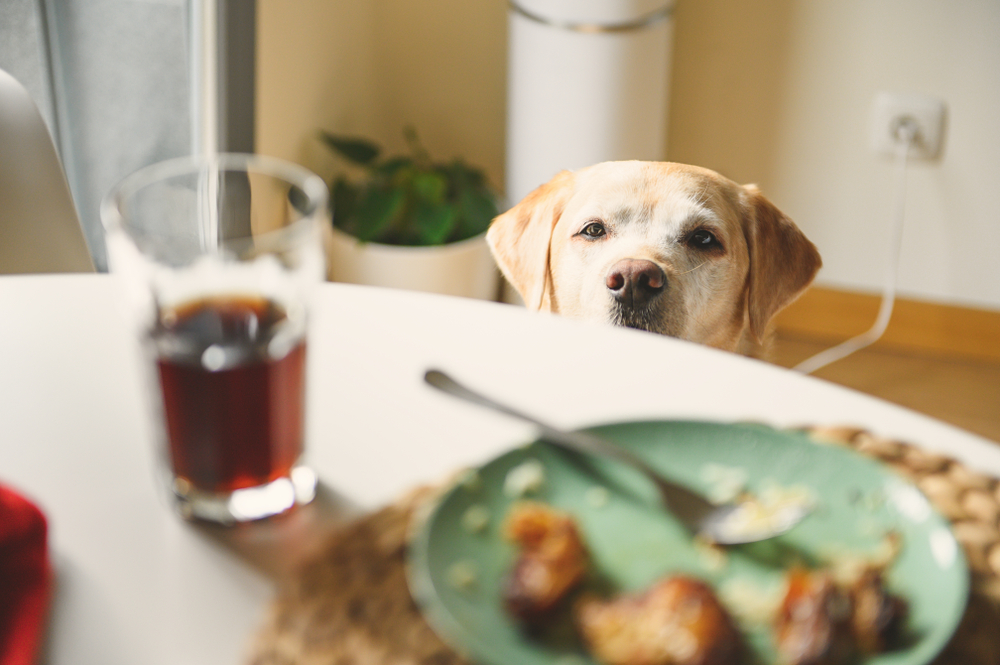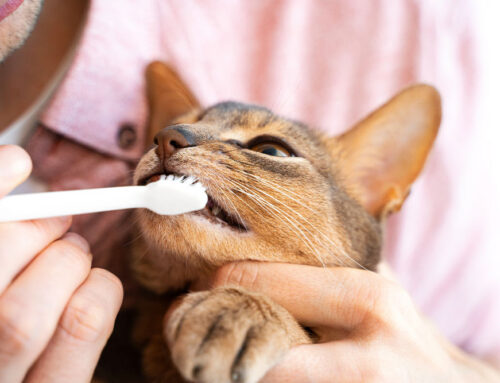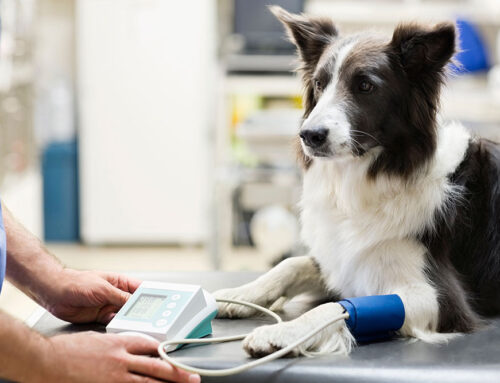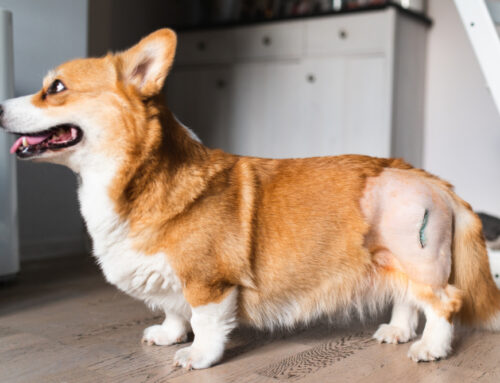Maintaining your pet at a healthy weight is important to prevent serious health complications associated with pet obesity. Over half the pets in the United States are overweight or obese, yet most pet owners don’t recognize that their pet is carrying excess weight. Our Fairfax Veterinary Clinic team wants to help by answering frequently asked questions about pet obesity.
Question: Why is pet obesity a problem?
Answer: Being overweight decreases your pet’s life expectancy and negatively impacts their quality of life. Excess weight prevents your pet from enjoying physical activity, and also predisposes them to many serious health issues, including:
- Cancer — Excess fat cells produce a chronic, low-grade inflammation throughout the body, as well as higher than normal levels of certain hormones that can lead to cancer.
- Diabetes — Increased circulating blood glucose levels can lead to insulin resistance and diabetes.
- Bladder stones — Overweight pets are at higher risk for developing calcium oxalate bladder stones.
- High blood pressure — The heart has to work harder to pump blood through an overweight pet’s body, causing a blood pressure increase.
- Chronic kidney disease — High blood pressure damages kidney tissue, resulting in chronic kidney disease.
- Respiratory disease — Excess fat lining the chest cavity in overweight pets inhibits their breathing and puts them at increased risk for laryngeal paralysis and tracheal collapse.
- Arthritis — Excess strain on an overweight pet’s joints exacerbates cartilage damage inside the joints. Chronic, low-grade inflammation also contributes to the problem.
- Cranial cruciate ligament (CCL) disease — Overweight pets are much more likely to develop CCL disease than pets maintained at a healthy weight.
Q: How do I know if my pet is overweight?
A: A pet is considered overweight if they weigh more than 10% above their ideal weight, and obese if their weight exceeds 30% of their ideal weight. You should be able to clearly define your pet’s waist and to easily palpate their ribs, which should not be obviously visible. The best way to determine if your pet is overweight is to ask our veterinary professionals to assess your pet’s weight status. Factors we will evaluate include:
- Weight — We accurately weigh your pet and track their weight at each visit.
- Body condition score (BCS) — We assess your pet’s BCS by evaluating their fat composition at certain body areas. A BCS of one indicates your pet is extremely emaciated, and a BCS of nine indicates they are extremely obese. An ideal BCS is four or five.
Q: What leads to pet obesity?
A: Conditions that can lead to pet obesity include:
- Overfeeding — The most common reason pets gain excess weight is overfeeding. Many pet owners enjoy feeding their pet treats and table scraps, which leads to obesity.
- Aging — As pets age, their metabolism naturally slows down, and conditions such as arthritis may make them less active, leading to weight gain.
- Hypothyroidism — A thyroid gland abnormality can lead to reduced thyroid hormone production. This hormone is important to regulate metabolism, and decreased levels cause weight gain.
- Hyperadrenocorticism — Also known as Cushing’s disease, this condition is caused by a tumor on the pituitary or adrenal glands, which results in increased cortisol levels, and then an increased appetite.
Q: How can I maintain my pet at a healthy weight?
A: Steps you can take to maintain your pet at a healthy weight include:
- Scheduling regular wellness visits — Pets should be evaluated by a veterinary professional at least once a year. Regular wellness visits help our veterinary team assess and track your pet’s weight status, so we can devise a safe weight loss strategy, if necessary.
- Determining your pet’s energy needs — Calculate your pet’s daily energy requirements to ensure they are not overfed. Pet calorie calculators make the process easier.
- Measuring your pet’s portions — Use standardized measuring tools (e.g., measuring cups, a kitchen scale) to accurately measure your pet’s meal portion.
- Limiting treats — Feed treats sparingly, and ensure you account for their calories in your pet’s overall daily calories.
- Monitoring your pet’s weight — Weigh your pet every three to four weeks to ensure they are remaining at a healthy weight.
- Providing appropriate exercise — Exercise your pet regularly to keep them fit and active.
Q: How do I help my overweight pet lose weight?
A: Consult our veterinary team, and let us together devise a weight loss plan that will help your pet safely lose the weight. We will tailor a plan specifically for your pet, but general guidelines include:
- Gradual weight loss — Drastic weight loss can be dangerous for pets. Generally, dogs should lose approximately 1% to 3% of their body weight per month, and cats should lose about 0.5% to 2% per month.
- Appropriate food — Prescription diets specifically formulated to help pets lose weight provide the necessary nutrients, and many have high fiber contents to help your pet feel more satiated.
- Strict adherence — Everyone in your pet’s sphere must adhere to the diet plan—which means no unauthorized treats. You should also be careful about accidentally dropping food when your pet is nearby.
- Healthy treats — Offer healthy options, such as baby carrots, broccoli, green beans, or celery, as low-calorie treats.
- Exercise — Gradually increase your pet’s activity level so they can acclimate to the extra exercise.
Obesity is a concerning issue for many pets, but you can take steps to maintain your pet at a healthy weight. If you would like your pet’s weight status assessed, contact our Fairfax Veterinary Clinic to schedule an appointment, so we can determine if they are at a healthy weight.









Leave A Comment